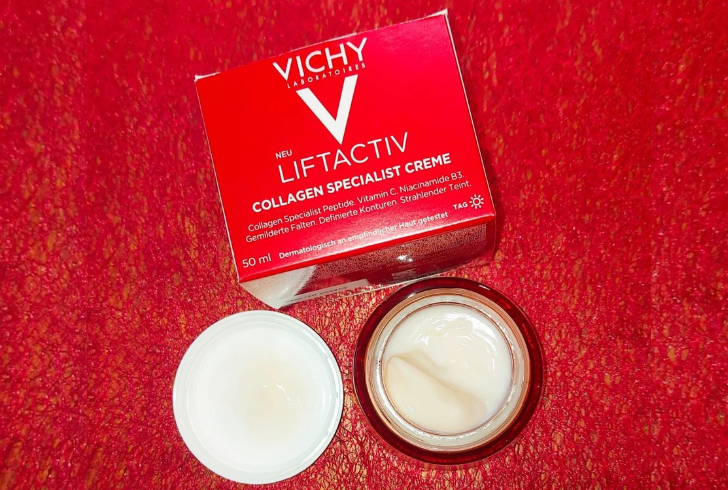The skincare world constantly introduces new ingredients, but only a few deliver real results. Polypeptides are one such ingredient gaining popularity for their proven benefits. These small chains of amino acids work to stimulate collagen production, repair damaged skin, and improve elasticity. While they might not be as well-known as retinol or salicylic acid, they are just as effective when used consistently.
Polypeptides target several skin concerns, making them a valuable addition to your skincare routine. Their versatility allows them to suit all skin types, which is why they are increasingly featured in products like serums, creams, and masks.
What Are Polypeptides in Skincare?

Polypeptides are short chains of amino acids that build proteins, such as collagen and elastin. These proteins are essential for maintaining skin structure, firmness, and smoothness. Unlike larger protein molecules, polypeptides easily penetrate the skin and interact with its cells.
Dr. Herrmann states that polypeptides act as messengers. They signal skin cells to increase collagen production, improving skin firmness and elasticity. In addition to this, polypeptides also help repair the skin barrier. This strengthened barrier protects against irritants, locks in hydration, and supports overall skin health.
Benefits of Polypeptides
Polypeptides offer multiple benefits, helping to improve skin texture, hydration, and elasticity. Their results may not be instant, but with regular use, they enhance the skin’s overall appearance.
1. Reduce Wrinkles and Fine Lines: Polypeptides increase collagen production. This makes the skin appear fuller, smoothing out fine lines and wrinkles over time.
2. Support the Skin Barrier: A healthy skin barrier keeps moisture in and blocks environmental irritants. Polypeptides strengthen this barrier, helping the skin function better.
3. Boost Skin Hydration: Since collagen contributes to water retention, peptides indirectly improve hydration. This leaves skin looking plump and radiant.
4. Calm Skin Irritation: Peptides reduce inflammation, soothing redness and sensitivity in irritated skin.
5. Firm and Tighten Skin: By stimulating elastin, polypeptides improve the skin’s elasticity, which reduces sagging.
6. Help Heal Damaged Skin: Carrier peptides deliver nutrients like copper to damaged skin. These nutrients promote faster recovery and repair.
These benefits make polypeptides an essential ingredient in anti-aging and reparative skincare products. Their ability to target multiple concerns ensures long-term improvements in skin health.
Types of Polypeptides
Polypeptides are classified into different categories based on their function. Understanding these categories can help in choosing the right product for specific needs.
1. Signal Peptides: These peptides trigger collagen and elastin production, improving the skin’s structure and firmness.
2. Carrier Peptides: They transport nutrients, like copper and magnesium, to the skin cells to aid repair and healing.
2. Neurotransmitter-Inhibiting Peptides: These peptides relax facial muscles temporarily, reducing the appearance of expression lines.
Each type works in unique ways, making polypeptides highly versatile for addressing various skin concerns.
How to Use Polypeptides
Using polypeptides effectively involves applying them consistently and following a few best practices. When incorporated correctly, they deliver visible improvements over time.
1. Apply Twice Daily: Use polypeptide products during both morning and evening routines for optimal results.
2. Choose Leave-On Products: Serums and creams that stay on the skin work best, as they provide more time for the peptides to absorb.
3. Enhance Absorption: Light exfoliation or treatments like microneedling improve peptide penetration, allowing them to reach deeper layers of the skin.
4. Avoid Mixing With AHAs: Strong acids, such as AHAs, can interfere with peptide performance, so it’s best to use them at separate times.
Polypeptides integrate seamlessly into most skincare routines. Regular application ensures smoother, firmer, and healthier-looking skin over time.
How Polypeptides Compare to Other Ingredients
Polypeptides deliver gradual improvements, making them different from ingredients like retinoids or AHAs, which often yield faster results. Instead of causing immediate exfoliation or turnover, peptides focus on improving the skin’s structure and long-term health.
Dermatologists often recommend pairing peptides with clinical treatments, such as microneedling or lasers. These treatments help peptides absorb more effectively, enhancing their impact. By complementing these therapies, polypeptides boost overall results.
Myths About Polypeptides
While polypeptides are effective, several myths surround their capabilities. Understanding what they can and cannot do helps set realistic expectations.
1. Not a Quick Fix: Peptides require consistent use over time. They don’t deliver instant results but gradually improve skin health.
2. Work Best as a Supplement: Polypeptides enhance existing skincare routines rather than replacing other essential ingredients like retinoids or antioxidants.
3. Not a Replacement for Clinical Procedures: Although some peptides reduce expression lines, they don’t offer the same dramatic effects as Botox or fillers.
Experts highlight the importance of combining polypeptides with other proven treatments. This approach ensures comprehensive skincare that addresses multiple concerns.
Choosing the Right Polypeptide Product

Selecting the right product involves matching it to your skin’s needs and goals. Various formulations are available, so choose one that aligns with your concerns.
1. For Anti-Aging: Serums with high peptide concentrations target wrinkles and loss of firmness.
2. For Hydration: Creams combining peptides with moisturizing ingredients work well for dry or dehydrated skin.
3. For Recovery: Products with carrier peptides help heal and strengthen skin after treatments like microneedling or lasers.
Examples of effective products include Drunk Elephant’s Protini Polypeptide Cream and Cocokind’s Resurrection Polypeptide Cream. These products combine peptides with complementary ingredients for maximum benefits.
Why Polypeptides Are Essential in Skincare
Polypeptides stand out as a highly effective skincare ingredient due to their ability to improve skin texture, repair damage, and enhance hydration. By boosting collagen production and supporting skin health, they address both visible and underlying concerns.
While they work gradually, polypeptides deliver reliable and long-lasting results with consistent use. Their versatility allows them to complement other ingredients, making them an excellent addition to any routine. With time, these small yet powerful molecules help create firmer, smoother, and healthier skin.




